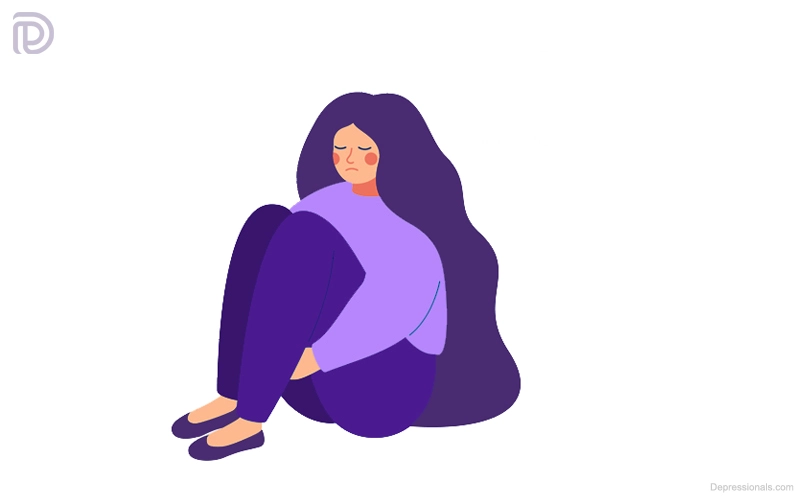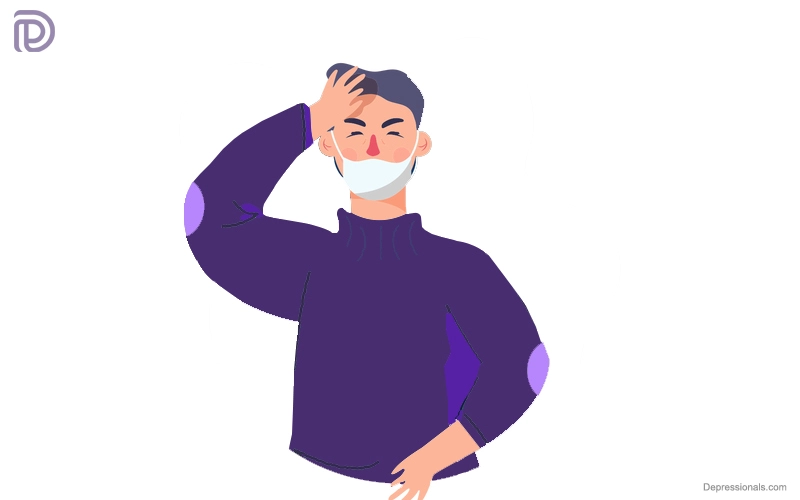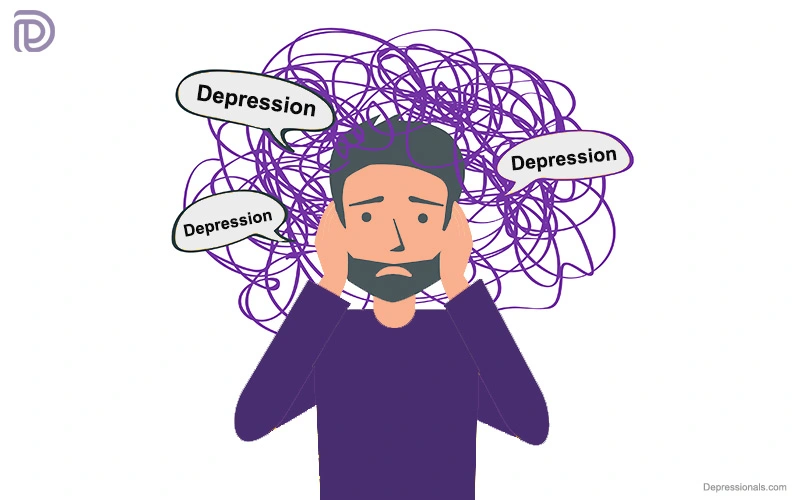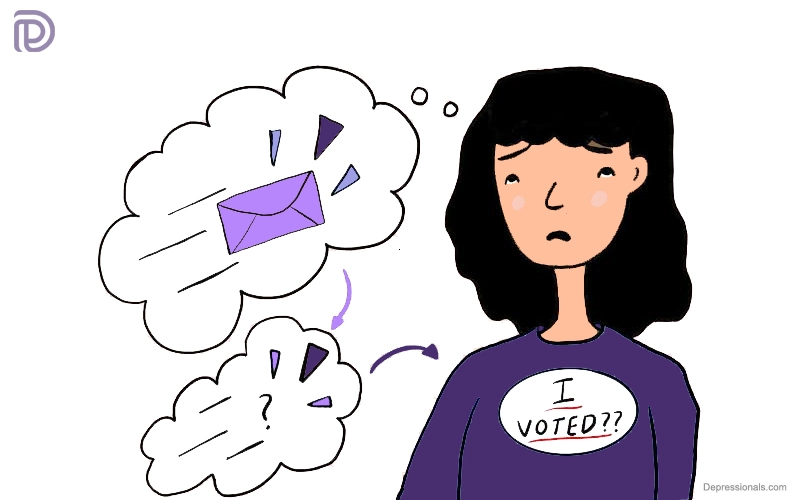What is melancholic depression?
Melancholic depression is a type of major depression with melancholy characteristics. Formerly recognized as a separate mental illness, melancholic depression is no longer identified as such by the American Psychiatric Association (APA). Now, melancholia is considered a subtype of major depressive disorder – a type of depression that is distinct from other forms of depression.
MDD is defined by an intense feeling of sadness and hopelessness over a sustained period of time. Many aspects of life, such as work, school and relationships, can be affected by the disorder.
A variety of physical functions, such as sleep and appetite, may also be affected, as well as mood and behavior. The symptoms of MDD lead to people losing interest in activities they used to enjoy and having trouble getting through the day. It is also possible for them to feel like life isn’t worth living from time to time.
Symptoms of MDD are both different in severity and type depending on the individual. Many people experiencing MDD develop additional symptoms, including melancholia and catatonia. Medications and talk therapy are usually sufficient to manage many symptoms.
Read: Situational Depression
Melancholy vs. depression
In the United States, 30.2% of adults suffer from depressive symptoms, according to the Centers for Disease Control and Prevention (CDC). People with this mood disorder experience persistent low moods that hamper their ability to perform daily activities like sleeping, eating, and working. A person’s menstrual cycle, life events, seasonal changes, or a change in their mood can all cause depression.
There is a consensus among researchers that 25–30% of people with depression suffer from melancholic depression. Melancholia may also be linked to unique brain changes not seen with other forms of depression, according to research from 2015. There is a reduced connection between the frontoparietal cortex and the insula in the above research, for instance.
An overview of the structure and function of the insula published in 2017 noted that it regulates mood, sensorimotor responses, and empathy.
Cortex frontoparietal helps control behavioral patterns and cognitive processes.
The brain regions associated with nonreactive mood are reduced in connectivity in people with melancholic depression who watch emotionally charged films. Nonmelancholic depression participants showed increased connectivity, contrary to participants with melancholic depression.
According to the above 2012 article, depression has traditionally been treated with rest, talk therapy, amphetamines, meprobamate, and benzodiazepines. Antidepressants are commonly prescribed to treat depression. Melancholia is treated by somatic therapies, electroconvulsive therapy (ECT), and tricyclic antidepressants.
Melancholic depression represents a subtype of severe clinical depression, but research has yet to confirm the distinct nature of the condition. This is currently considered a symptom of severe depression by official diagnostic guidelines.
Symptoms of melancholic depression
Melancholic depression can manifest in people with symptoms such as:
- Feeling depressed for long periods of time
- Reducing interest in previously pleasant activities
- Lack of energy or fatigue
- Anxiety or irritability
- Overeating or undereating
- Insufficient sleep
- Movement changes in the body (e.g., jiggling your leg when you did not before)
- Inability to concentrate, make decisions or remember thing.
- Suicidal thoughts or feelings
- Suicide attempt
Additionally, MDD sufferers may experience melancholic symptoms, such as:
- Lack of enjoyment in daily activities
- Inability to react to good news
- Depressive and hopeless feelings
- Sleep disruptions
- Significant weight loss
- Feelings of excessive guilt
- Daytime symptoms of MDD
Those who frequently suffer from severe symptoms of MDD are more likely to exhibit melancholic features. These symptoms are also more common in people with MDD and psychosis.
Read: Teen Depression
Diagnosing melancholic depression
There are no longer distinct types of melancholic depression in the APA, and it is now grouped under MDD. Whenever a person has both depression and melancholy, the diagnosis is “major depressive disorder with melancholia.” To make this diagnosis, a physician will ask some of the following questions:
- Can you get out of bed and start your day easily?
- How about your symptoms in the mornings?
- Do you sleep well?
- Has your sleep pattern changed?
- Describe a typical day in your life.
- Are you following the same routine every day?
- Do you still enjoy the same activities?
- How do you improve your mood?
- Do you find it harder to concentrate than before?
Also Readout: Endogenous Depression
Treatments for melancholic depression
A newer type of antidepressant may be used to treat MDD, such as selective serotonin reuptake inhibitors (SSRIs). There are well-known medications such as Prozac (fluoxetine), Celexa (citalopram) and Paxil (paroxetine).
There is evidence that some patients with MDD who have melancholic characteristics may respond better to older antidepressants, such as tricyclic antidepressants. They may also benefit from monoamine oxidase inhibitors (MAOIs) and serotonin-norepinephrine reuptake inhibitors (SNRIs), such as venlafaxine.
They increase the brain’s concentration of “feel good” chemicals like serotonin and norepinephrine by inhibiting their breakdown. It is sometimes possible to augment the effects of antidepressants with certain atypical antipsychotics, such as Abilify (aripiprazole).
People with MDD with melancholic characteristics are often treated with talk therapy in addition to medication. Combining these two methods of treatment typically yields greater results than either method alone.
Regular meetings with a therapist are needed for discussing symptoms and issues. They can teach you how to:
- Adapt to stress or a crisis
- Make positive changes to your beliefs and behaviors
- Communicate more effectively
- Deal with challenges effectively
- Improve self-esteem
- Feel more in control of life
Similar to individual therapy, group therapy allows you to share feelings with others who are able to relate.
A quick solution to MDD with melancholic features is electroconvulsive therapy (ECT). An electrode is attached to the head in order to trigger a mild seizure by sending electrical impulses to the brain.
Mental illnesses and mood disorders are now considered safe and effective when treated with ECT, but it still carries a stigma. Therefore, it is not recommended as a primary treatment for melancholy. The best treatment for MDD with melancholic features may be a combination of medication, talk therapy and ECT.
Related: How to Overcome Depression
Coping
It can cause major disruptions in how an individual is able to function in many areas of their lives since melancholic depression is characterized by tremendous sadness, loss of pleasure, and disinterest in daily activities.
It is important to speak with your doctor if you suspect that you are experiencing melancholic symptoms. One of the most effective treatments for this condition is antidepressants1. You can, however, do other things to manage your symptoms.
You can improve your mood by modifying your lifestyle in the following ways:
- Exercise regularly
- Friendships and family time
- a healthy diet
- Meditation
- Sleeping on a regular schedule
These are all important things to remember, but melancholy depression’s symptoms can make them difficult. Your medication may take effect sooner than you expected, so you may be able to incorporate some of these changes more easily.
Managing your symptoms of melancholic depression may also be easier with online resources and support groups. Make sure you consult a doctor in order to determine whether this is a good complement to the other treatments you’re currently receiving.
Suicide prevention
You should act immediately if you think someone is at immediate risk of harming themselves or others:
- Dial 911 or the local emergency number right away.
- Make sure they have enough time to call for help before helping them.
- Do not leave guns, knives, medications, or other items in the room.
- Listen without judging, arguing, threatening or yelling.
Seek help from a crisis hotline or suicide prevention organization if you think someone is considering suicide. For more information, please call the National Suicide Prevention Lifeline: 800-273-8255.
Contact: Mental Help Resources
Summary
There is no evidence linking melancholic depression with major depressive disorder, but the DSM-5 recognizes it as a feature or symptom. There are some researchers, however, who advocate reclassifying melancholic depression as an entirely separate disorder.
People who experience melancholy as part of depression should seek help from a doctor or mental health professional. A variety of treatment options are available for depression, including medication, therapy, and other types of therapy.






Whats up very cool blog!! Guy .. Excellent .. Amazing .. I’ll bookmark your web site and take the feeds also?I’m glad to seek out numerous helpful info right here within the publish, we need work out extra strategies in this regard, thank you for sharing. . . . . .
It is perfect time to make some plans for the long run and it is time to be happy. I have learn this post and if I may I desire to counsel you some attention-grabbing things or advice. Perhaps you could write subsequent articles regarding this article. I wish to read more issues about it!
Great blog post.
I simply wanted to make a brief comment so as to appreciate you for these fantastic techniques you are giving here. My particularly long internet search has now been rewarded with reasonable suggestions to share with my relatives. I would point out that we visitors actually are unquestionably fortunate to dwell in a wonderful community with very many special professionals with valuable points. I feel very much lucky to have come across the web page and look forward to tons of more brilliant times reading here. Thank you once more for a lot of things.
Nice post!
Thanks for revealing your ideas about this important health issue.
Thank you for another informative site. Where else could I get that kind of info written in such an ideal way? I have a project that I am just now working on, and I’ve been on the look out for such info.
Attractive section of content. I just stumbled upon your web site and in accession capital to assert that I acquire in fact enjoyed account your blog posts. Any way I will be subscribing to your augment and even I achievement you access consistently quickly.
Howdy! This is my first visit to your blog! We are a team of volunteers and starting a new initiative in a community in the same niche. Your blog provided us valuable information to work on. You have done a marvellous job!
I believe this is among the most vital information for me. And i am happy studying your article. However wanna observation on few common things, The web site style is wonderful, the articles is actually excellent : D. Good job, cheers
Via my examination, shopping for technology online may be easily expensive, however there are some how-to’s that you can use to help you get the best bargains. There are constantly ways to discover discount deals that could help to make one to ge thet best electronic products products at the cheapest prices. Great blog post.
Simply want to say your article is as surprising. The clearness in your post is just excellent and i can assume you are an expert on this subject. Fine with your permission let me to grab your feed to keep updated with forthcoming post. Thanks a million and please carry on the rewarding work.
I feel this is one of the such a lot significant information for me. And i am happy reading your article. However should observation on few general issues, The web site style is great, the articles is really nice : D. Just right activity, cheers
Nice post. I learn one thing tougher on different blogs everyday. It’s going to at all times be stimulating to learn content from other writers and apply a bit of one thing from their store. I抎 favor to make use of some with the content material on my blog whether or not you don抰 mind. Natually I抣l offer you a hyperlink on your web blog. Thanks for sharing.
Interesting article. It is very unfortunate that over the last years, the travel industry has already been able to to take on terrorism, SARS, tsunamis, influenza, swine flu, along with the first ever true global downturn. Through all this the industry has proven to be sturdy, resilient in addition to dynamic, finding new solutions to deal with hardship. There are continually fresh problems and opportunity to which the industry must again adapt and act in response.
Its like you read my mind! You seem to know a lot about this, like you wrote the book in it or something. I think that you can do with a few pics to drive the message home a little bit, but other than that, this is wonderful blog. A fantastic read. I’ll certainly be back.
I enjoy you because of your entire effort on this site. Kim takes pleasure in engaging in investigation and it is obvious why. We all notice all about the dynamic ways you convey reliable tips by means of the blog and as well as strongly encourage participation from other ones about this area of interest and our favorite daughter has always been studying so much. Enjoy the rest of the new year. You’re carrying out a fabulous job.
One other thing I would like to talk about is that as opposed to trying to fit all your online degree courses on times that you finish work (considering that people are tired when they get back), try to arrange most of your lessons on the week-ends and only 1 or 2 courses in weekdays, even if it means a little time away from your weekend. This is beneficial because on the saturdays and sundays, you will be a lot more rested plus concentrated in school work. Thanks for the different tips I have acquired from your web site.
Thanks for your article. It is quite unfortunate that over the last years, the travel industry has already been able to to take on terrorism, SARS, tsunamis, bird flu, swine flu, and the first ever real global recession. Through it all the industry has really proven to be effective, resilient and also dynamic, acquiring new ways to deal with trouble. There are continually fresh issues and possibilities to which the market must once again adapt and reply.
Thanks for expressing your ideas on this blog. Also, a myth regarding the banks intentions whenever talking about property foreclosure is that the standard bank will not have my installments. There is a certain amount of time that this bank will need payments occasionally. If you are too deep inside the hole, they should commonly demand that you pay that payment completely. However, that doesn’t mean that they will not take any sort of installments at all. Should you and the standard bank can manage to work one thing out, the foreclosure practice may cease. However, in the event you continue to neglect payments within the new plan, the home foreclosure process can just pick up exactly where it left off.
Thanks for the unique tips shared on this website. I have realized that many insurance agencies offer prospects generous discount rates if they favor to insure more and more cars with them. A significant volume of households include several autos these days, particularly people with more mature teenage youngsters still dwelling at home, as well as the savings with policies might soon increase. So it is good to look for a good deal.
Very interesting info !Perfect just what I was searching for!
What a nice website, cannot wait to read new articles.
These kind of post are always inspiring and I prefer to check out quality content so I happy to finally find many excellent point here in the post, writing is simply great, thank you for the post
Some truly nice stuff on this internet site, I like it.